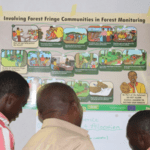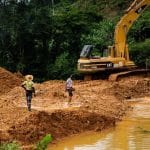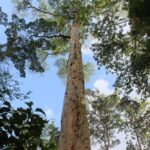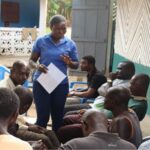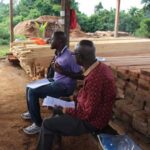Forest Management
Improving the environmental performance of
forest products sector in West Africa.
Overview
The desire to eliminate illegal forestry activities and associated trade and to achieve sustainable forest management has been on the agenda of international community and various governments of west Africa. Achieving this goal has however, been elusive to many countries in the West African Sub-Region with the consequent loss of valuable biodiversity, increasing threat to local people’s livelihood as well as threat to the long-term sustainability of forestry businesses. Although forest legality; a mechanism for forest monitoring, tracing and labeling timber, wood and other products emanating from it; where the quality of forest management is judged against a series of agreed standard, has been widely accepted as one important tool to help forest managers to achieve sustainable forest management, its adoption has rather been slow in West Africa due largely to the absence of enabling conditions. However, with shifting landscape in international timber markets as a result of the introduction of the EU’s Forest Law Enforcement Governance and Trade (FLEGT) and its associated Voluntary Partnership Agreements (VPA), the EU Timber Regulations and the US Lacey Act among others is creating a situation where individual timber suppliers and buyers are placed in apposition to remove timber of questionable sources from their supply chain.
Why it matters
Responsible forest management covers much more than just correct logging practices. It encompasses social and economic well-being of workers and the local communities. Transparency and inclusiveness in decision making are also covered in the responsibility process.
What NDF is doing
The project is multi country and will be implemented in Ghana, Cote D’Ivoire and Liberia concurrently. The idea of this project is to develop interventions to reach out to beneficiaries of both processes (FLEGT & REDD+) with the same resources and ensure the success of REDD+ and FLEGT in the sub region. The project will employ Trainer of Trainers (TOT) approach where sets of NSAs would be given training to build their capacity and resources provided them to in-turn train other smaller NSAs. There will also be enhancement of capacity and information sharing among NSAs within their network and beyond.
